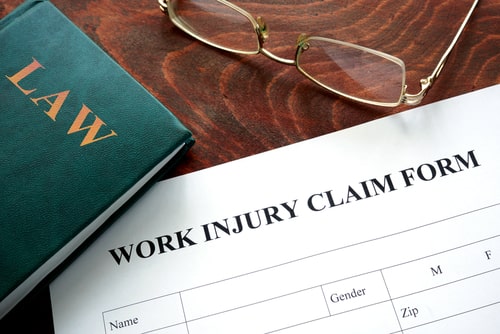
 Illinois, like many other states, has a substantial workers' compensation system in place to protect employees who suffer work-related injuries or illnesses. If you have suffered an injury or illness due to your employment, it is important to understand the types of benefits you may be entitled to. The following is a brief overview of those benefits. For more detailed information regarding your particular case, consider reaching out to an experienced Illinois workers' comp lawyer.
Illinois, like many other states, has a substantial workers' compensation system in place to protect employees who suffer work-related injuries or illnesses. If you have suffered an injury or illness due to your employment, it is important to understand the types of benefits you may be entitled to. The following is a brief overview of those benefits. For more detailed information regarding your particular case, consider reaching out to an experienced Illinois workers' comp lawyer.
One of the primary benefits of the Illinois workers' compensation system is the coverage of medical expenses related to your work injury or illness. This includes emergency room treatment, hospitalizations, doctor visits, diagnostic tests, surgeries, rehabilitation, medications, equipment, and other necessary medical treatments. The employer or their insurance carrier is required to pay for those expenses under the Workers' Compensation Act.
If your injury prevents you from working for a temporary amount of time, you may be eligible for Temporary Total Disability (TTD) benefits. These benefits are meant to provide you with compensation during the time you are unable to work. TTD benefits are typically two-thirds of your average weekly wage, subject to minimum and maximum limits.
If you are able to work but in a limited capacity, you may be eligible for Temporary Partial Disability (TPD) benefits if you will be earning less than your pre-injury wages. These benefits make up the difference between what you were earning prior to your injury and what you are not earning in your limited capacity.
If your work-related injury or illness results in permanent impairment but does not render you completely unable to work, you may qualify for Permanent Partial Disability (PPD) benefits. The amount you receive is based on the nature and extent of your impairment, age, and occupation.
If your work-related injury or illness permanently prevents you from engaging in gainful employment, you may qualify for Permanent Total Disability (PTD) benefits. These benefits provide ongoing financial support for individuals in such situations.
In addition to financial benefits, if your injury prevents you from returning to your previous job, Illinois workers' compensation insurance may be required to provide vocational rehabilitation services to help you acquire new skills or training for a different occupation. The goal of this training is to assist you in transitioning back into the workforce.
In cases of fatal work-related accidents or illnesses, surviving dependents, such as a spouse or children, may be eligible for death benefits. These benefits can help cover funeral expenses and financially support the deceased worker's family.
The workers' compensation process in Illinois can be complex, and disputes may arise between employees and employers or insurance companies. In such cases, the Illinois Workers' Compensation Commission (IWCC) is responsible for resolving these disputes.
Whether you are filing your initial claim, or your claim has already been denied, the skilled Aurora, IL workers' compensation attorneys from Kinnally Flaherty Krentz Loran Hodge & Masur P.C. are here to help. Call our office today at 630-907-0909 to schedule a free consultation and find out what legal options you may have.